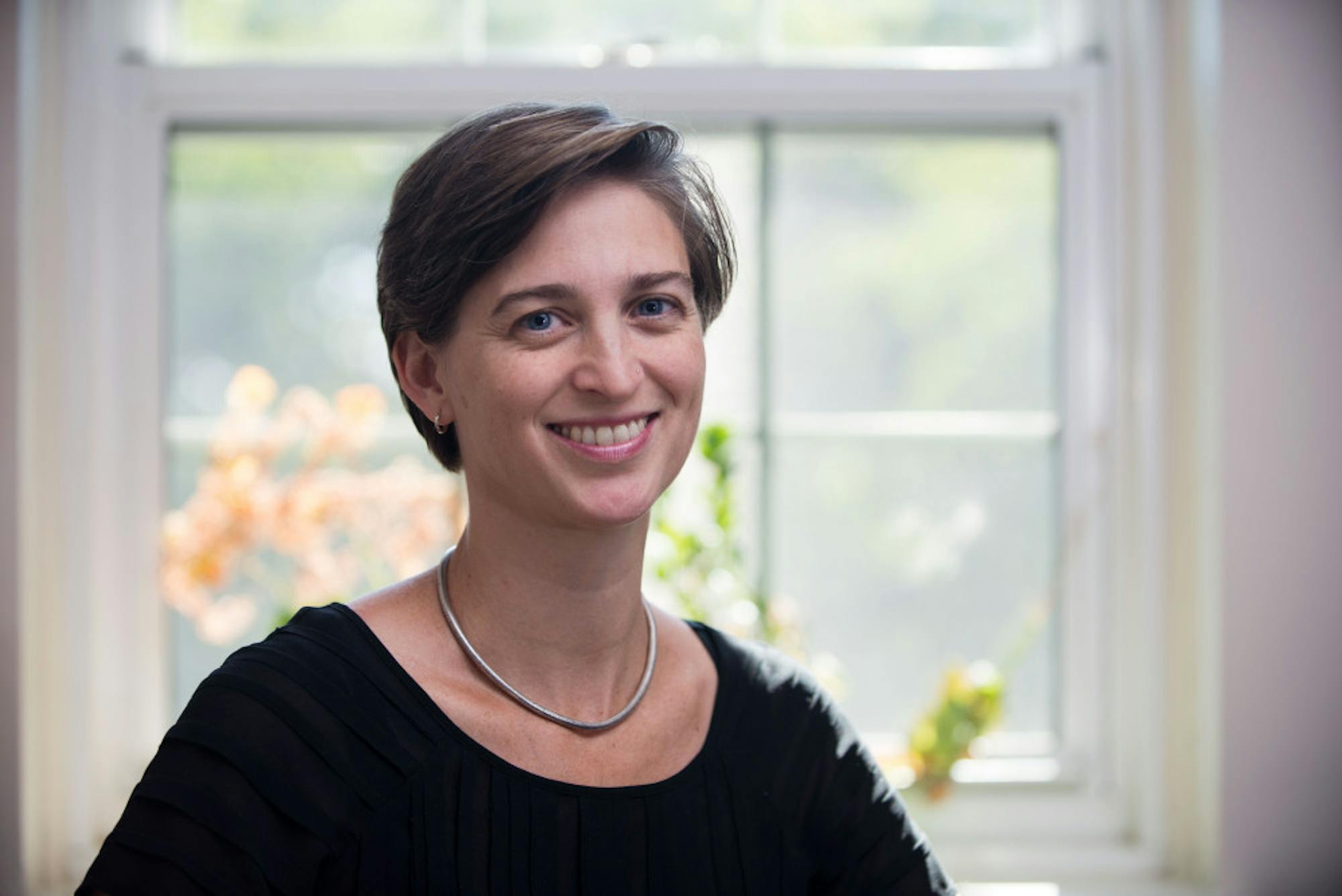Associate Professor of Anthropology Sarah Pinto has taken over the role of program director for Women’s, Gender, and Sexuality Studies (WGSS), replacing former program director and Associate Professor of English Sonia Hofkosh.
Pinto, who has been a WGSS Faculty Committee member for eight years, said that the role of program director was a natural fit and an obvious choice for her.
“It’s a program I believe in, and it’s an area of study I believe in very strongly,” she said.
Pinto's areas of expertise and work at Tufts reflect the different facets of the WGSS program, according to Associate Professor of Art History Adriana Zavala, who is also a WGSS Faculty Committee member.
“I think she’s been a passionate member of the WGSS [Faculty] Committee, and it’s really exciting to have her now as a director because her research and her teaching is really dedicated to these three interrelated fields [of women’s, gender and sexuality studies],” Zavala said.
Hofkosh held the role of interim program director of WGSS for the past three years, following a previous two-term, six-year stint as program director for what was then known as the Women’s Studies Program. She said that Pinto had been interested in the position when it became available three years ago, but was just about to go on leave. There were not many people who were both willing and able to take on the role, Hofkosh said regarding her appointment as interim director.
As program director, Pinto hopes to expand the program’s visibility on campus and expand on the work done by her predecessors in maintaining an active schedule of programming. Pinto explained that WGSS sponsors a number of events throughout the year, including a research symposium every spring called Beyond the Classroom, in which students present work they have done related to women, gender and sexuality in a public forum.
The role of program director encompasses a range of tasks, from filling out administrative paperwork to ensuring that courses are offered and papers are signed for students, to being an advocate for the program and the discipline on campus and in the community, Pinto added.
“This is my first time as program director so I think there is just a learning curve … in taking on any leadership position,” she said. “There are many new things to learn but I’m just very excited to be back.”
The program director for WGSS typically acts as advisor to all of the majors and minors in the program, but Hofkosh said she will retain current seniors as her advisees while most of the juniors and sophomores have been switched over to Pinto.
According to Zavala, the director also works with the program's Faculty Committee to develop programming that is sponsored by WGSS. This includes developing a course list, reviewing curricular questions and serving as an ambassador on campus.
“[Being program director] is like a tag team marathon,” she said. “You pass the baton, and you keep the next person running by cheering them on.”
Hofkosh added that there are many gratifications that come with working in an interdisciplinary program, such as collaborating with colleagues across different departments and working with students in a very close, intensive way.
“Because we have relatively few majors and minors … [and] because of the nature of [WGSS], people bring their passions and their experiences and their political commitments to the program so you often get much more from the student than you would ordinarily,” she said.
Two years ago, Pinto taught a course in feminist research methodology titled "Doing Feminist Research," a pivotal course for WGSS majors and minors in which students begin to develop their senior projects. She said that it was exciting to watch students transform into researchers and understand the interdisciplinary yet cohesive nature of the field.
While no longer on the faculty committee, Hofkosh said she intends to remain involved in the program by teaching classes in the English Department that are cross-listed in WGSS, participating in events, helping with planning and answering questions.
“The thing about directing WGSS is it’s very much a collaboration … among faculty and students and staff,” she said.
Zavala said that she does not foresee any challenges in the near future that they have not already faced. However, according to both Hofkosh and Zavala, limited resources in terms of time and money is always an issue, as is having to explain the nature and importance of WGSS.
“The interdisciplinary programs really exist because of the interest of students and the interest and commitment of faculty,” Zavala said. “Our incentive to do it is because we love it.”
Pinto named WGSS program director

Sarah Pinto became the new director of the Women and Gender and Sexuality Studies program.





